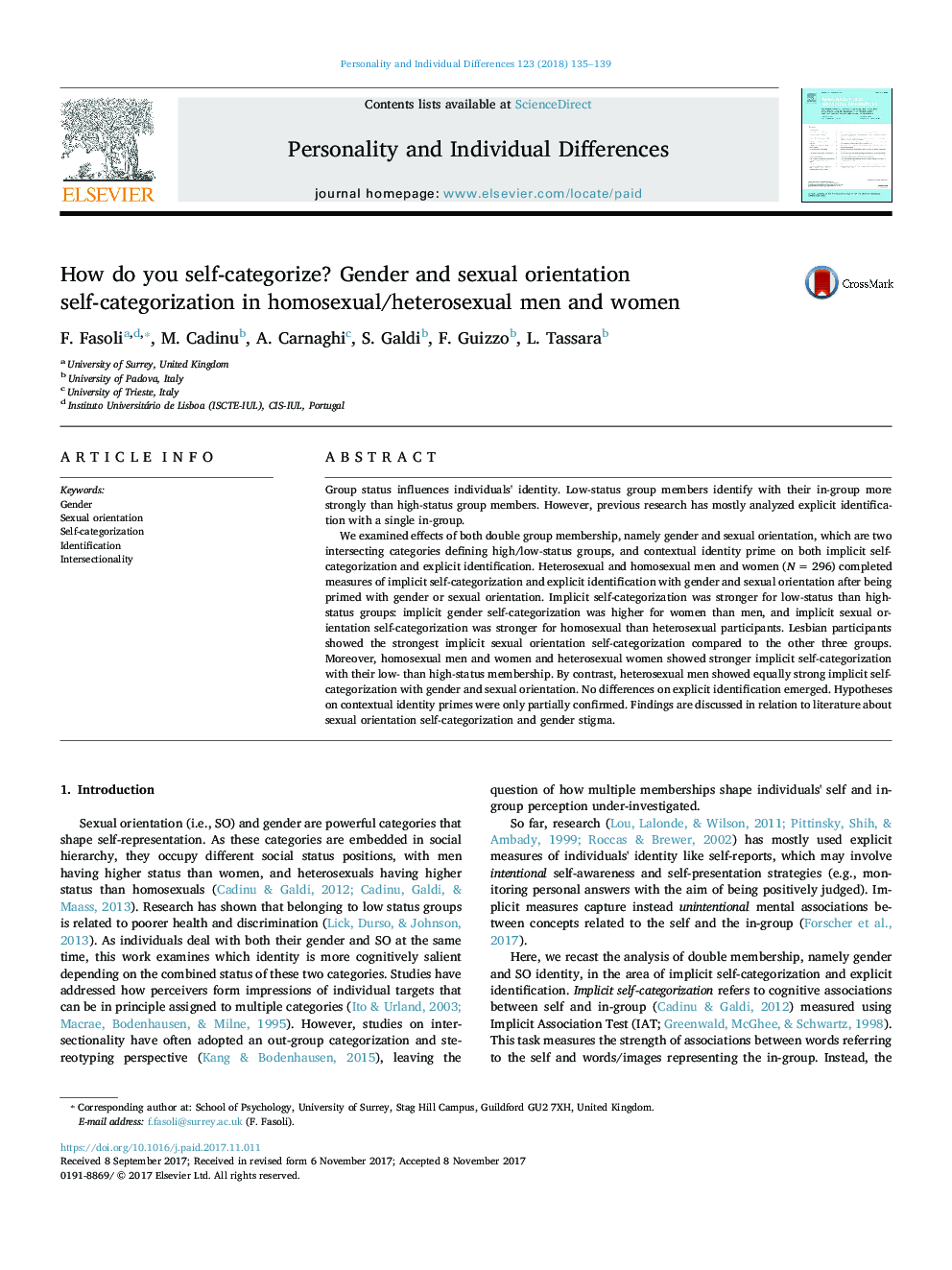| Article ID | Journal | Published Year | Pages | File Type |
|---|---|---|---|---|
| 7249229 | Personality and Individual Differences | 2018 | 5 Pages |
Abstract
We examined effects of both double group membership, namely gender and sexual orientation, which are two intersecting categories defining high/low-status groups, and contextual identity prime on both implicit self-categorization and explicit identification. Heterosexual and homosexual men and women (NÂ =Â 296) completed measures of implicit self-categorization and explicit identification with gender and sexual orientation after being primed with gender or sexual orientation. Implicit self-categorization was stronger for low-status than high-status groups: implicit gender self-categorization was higher for women than men, and implicit sexual orientation self-categorization was stronger for homosexual than heterosexual participants. Lesbian participants showed the strongest implicit sexual orientation self-categorization compared to the other three groups. Moreover, homosexual men and women and heterosexual women showed stronger implicit self-categorization with their low- than high-status membership. By contrast, heterosexual men showed equally strong implicit self-categorization with gender and sexual orientation. No differences on explicit identification emerged. Hypotheses on contextual identity primes were only partially confirmed. Findings are discussed in relation to literature about sexual orientation self-categorization and gender stigma.
Related Topics
Life Sciences
Neuroscience
Behavioral Neuroscience
Authors
F. Fasoli, M. Cadinu, A. Carnaghi, S. Galdi, F. Guizzo, L. Tassara,
